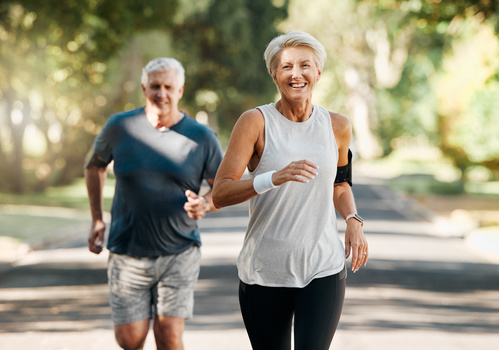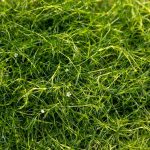
Retirement, couple and running fitness health for body and heart wellness with natural ageing. Married, mature and senior people enjoy nature run together for cardiovascular vitality workout
-
Table of Contents
“Unlock the secrets to healthy aging and embrace vitality and independence at any age.”
Introduction:
Healthy aging is a process that involves adopting lifestyle choices and habits to maintain vitality and independence as we grow older. It encompasses various aspects of physical, mental, and emotional well-being, aiming to enhance the quality of life in our later years. By following certain tips and practices, individuals can promote healthy aging and enjoy a fulfilling and independent life for as long as possible.
The Importance of Regular Exercise for Healthy Aging
Regular exercise is crucial for maintaining vitality and independence as we age. As we get older, our bodies naturally undergo various changes, such as a decrease in muscle mass and bone density. However, engaging in regular physical activity can help counteract these effects and promote healthy aging.
One of the key benefits of exercise for older adults is the preservation of muscle mass. As we age, we tend to lose muscle mass, which can lead to weakness and a decline in physical function. By engaging in strength training exercises, such as lifting weights or using resistance bands, older adults can build and maintain muscle mass, improving their overall strength and mobility.
Exercise also plays a vital role in maintaining bone health. Osteoporosis, a condition characterized by weak and brittle bones, is a common concern for older adults. Weight-bearing exercises, such as walking, jogging, or dancing, help stimulate bone growth and reduce the risk of fractures. Additionally, activities that involve balance and coordination, like yoga or tai chi, can help improve stability and prevent falls, which can be particularly dangerous for older adults.
Furthermore, regular exercise has numerous cardiovascular benefits. It helps improve heart health by strengthening the heart muscle and reducing the risk of heart disease. Engaging in aerobic exercises, such as swimming or cycling, can also help lower blood pressure and cholesterol levels, further reducing the risk of cardiovascular problems.
Exercise is not only beneficial for physical health but also for mental well-being. Research has shown that regular physical activity can help reduce the risk of cognitive decline and improve overall brain function. Exercise increases blood flow to the brain, promoting the growth of new neurons and enhancing cognitive abilities, such as memory and attention. It also releases endorphins, which are natural mood boosters, helping to alleviate symptoms of depression and anxiety.
In addition to these physical and mental benefits, exercise can also have a positive impact on social well-being. Participating in group exercise classes or joining sports clubs can provide opportunities for social interaction and a sense of community. This is particularly important for older adults who may be at risk of social isolation or loneliness.
When incorporating exercise into a healthy aging routine, it is important to consider individual abilities and limitations. Older adults should consult with their healthcare provider before starting any new exercise program, especially if they have any underlying health conditions. It is also important to start slowly and gradually increase the intensity and duration of exercise over time. Finding activities that are enjoyable and sustainable is key to maintaining a regular exercise routine.
In conclusion, regular exercise is essential for healthy aging. It helps preserve muscle mass, maintain bone health, improve cardiovascular function, enhance cognitive abilities, and promote social well-being. By incorporating exercise into their daily lives, older adults can maintain vitality and independence, allowing them to enjoy a high quality of life as they age.
Nutritional Guidelines for Promoting Longevity and Well-being
Nutritional Guidelines for Promoting Longevity and Well-being
As we age, it becomes increasingly important to pay attention to our nutritional needs in order to maintain vitality and independence. A well-balanced diet can help prevent chronic diseases, boost our immune system, and improve overall well-being. In this section, we will explore some essential nutritional guidelines for healthy aging.
First and foremost, it is crucial to consume a variety of nutrient-dense foods. This means incorporating fruits, vegetables, whole grains, lean proteins, and healthy fats into our daily meals. These foods provide essential vitamins, minerals, and antioxidants that support our body’s functions and protect against age-related diseases.
Fruits and vegetables should be the foundation of our diet. They are rich in fiber, vitamins, and minerals, and low in calories. Aim to include a colorful assortment of fruits and vegetables in your meals, as different colors indicate different nutrients. For example, orange fruits and vegetables are high in vitamin C and beta-carotene, which promote healthy skin and immune function.
Whole grains, such as brown rice, quinoa, and whole wheat bread, are excellent sources of fiber and complex carbohydrates. They provide sustained energy and help regulate blood sugar levels. Additionally, they contain B vitamins, which are essential for brain health and energy production.
Protein is another important component of a healthy diet for aging adults. It helps maintain muscle mass, supports immune function, and aids in wound healing. Opt for lean sources of protein, such as fish, poultry, beans, and tofu. If you have difficulty meeting your protein needs through food alone, consider adding a protein supplement or consulting with a registered dietitian.
Healthy fats, such as those found in avocados, nuts, and olive oil, are essential for brain health and reducing inflammation. They also help absorb fat-soluble vitamins, such as vitamin D and vitamin E. However, it is important to consume fats in moderation, as they are high in calories. Aim for a balance between different types of fats and limit saturated and trans fats, which can increase the risk of heart disease.
In addition to choosing the right foods, it is important to pay attention to portion sizes. As we age, our metabolism slows down, and our calorie needs decrease. It is easy to overeat, especially when dining out or eating processed foods. Be mindful of portion sizes and listen to your body’s hunger and fullness cues.
Hydration is also crucial for healthy aging. As we get older, our sense of thirst may diminish, making it easy to become dehydrated. Aim to drink at least eight glasses of water per day, and more if you are physically active or live in a hot climate. If plain water becomes boring, try infusing it with fruits or herbs for added flavor.
Lastly, it is important to limit the intake of sugary beverages, such as soda and fruit juices. These drinks are high in empty calories and can contribute to weight gain and chronic diseases. Opt for water, herbal tea, or unsweetened beverages instead.
In conclusion, maintaining a well-balanced diet is essential for healthy aging. By following these nutritional guidelines, you can promote longevity, prevent chronic diseases, and maintain your vitality and independence. Remember to consume a variety of nutrient-dense foods, pay attention to portion sizes, stay hydrated, and limit sugary beverages. Consult with a healthcare professional or registered dietitian for personalized advice and recommendations.
Strategies for Maintaining Cognitive Function and Mental Health in Older Adults
Strategies for Maintaining Cognitive Function and Mental Health in Older Adults
As we age, it is natural for our cognitive function and mental health to undergo changes. However, there are several strategies that can help older adults maintain their cognitive abilities and mental well-being, allowing them to continue living independently and with vitality.
One of the most important strategies for maintaining cognitive function is to engage in regular mental stimulation. This can include activities such as reading, puzzles, and learning new skills. By challenging the brain with new information and tasks, older adults can keep their minds sharp and prevent cognitive decline. Additionally, staying socially active is crucial for mental health. Regular social interactions can help prevent feelings of loneliness and isolation, which are known risk factors for cognitive decline and mental health issues.
Another key strategy for maintaining cognitive function and mental health is to adopt a healthy lifestyle. This includes eating a balanced diet that is rich in fruits, vegetables, whole grains, and lean proteins. A healthy diet provides the necessary nutrients for brain health and can help reduce the risk of cognitive decline. Regular exercise is also essential for maintaining cognitive function. Physical activity increases blood flow to the brain, promotes the growth of new brain cells, and improves memory and cognitive abilities.
In addition to mental stimulation and a healthy lifestyle, it is important for older adults to manage stress effectively. Chronic stress can have a negative impact on cognitive function and mental health. Engaging in stress-reducing activities such as meditation, deep breathing exercises, or engaging in hobbies can help older adults maintain their cognitive abilities and mental well-being.
Furthermore, getting enough sleep is crucial for cognitive function and mental health. Sleep plays a vital role in memory consolidation and cognitive processing. Older adults should aim for seven to nine hours of quality sleep each night to support optimal brain function.
It is also important for older adults to stay on top of their medical care. Regular check-ups with healthcare professionals can help identify and address any underlying health conditions that may affect cognitive function and mental health. Additionally, it is important to follow any prescribed medications and treatments as directed.
Lastly, maintaining a positive outlook and a sense of purpose in life can greatly contribute to cognitive function and mental well-being. Engaging in activities that bring joy and fulfillment, such as volunteering or pursuing hobbies, can help older adults maintain a positive mindset and a sense of purpose. Having a positive attitude can also help older adults cope with challenges and setbacks that may arise.
In conclusion, there are several strategies that can help older adults maintain their cognitive function and mental health. Engaging in regular mental stimulation, adopting a healthy lifestyle, managing stress effectively, getting enough sleep, staying on top of medical care, and maintaining a positive outlook are all important for maintaining vitality and independence as we age. By incorporating these strategies into daily life, older adults can continue to live fulfilling and independent lives while preserving their cognitive abilities and mental well-being.In conclusion, maintaining vitality and independence during the aging process is crucial for a healthy and fulfilling life. By adopting a balanced and nutritious diet, engaging in regular physical activity, staying mentally and socially active, managing stress, and seeking regular medical check-ups, individuals can promote healthy aging and enhance their overall well-being. Additionally, incorporating healthy habits into daily routines and making positive lifestyle choices can contribute to a higher quality of life and increased independence as one grows older.






